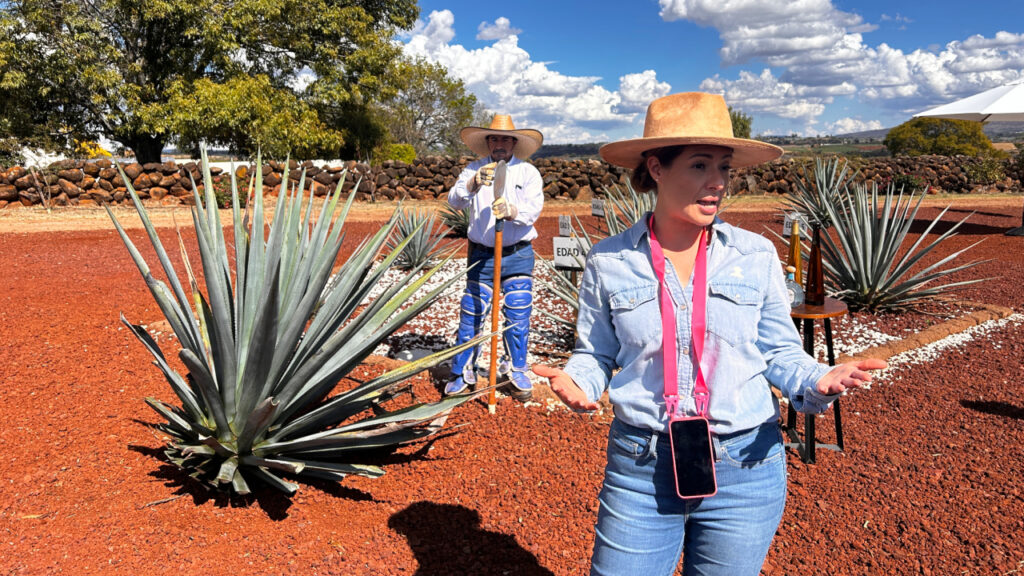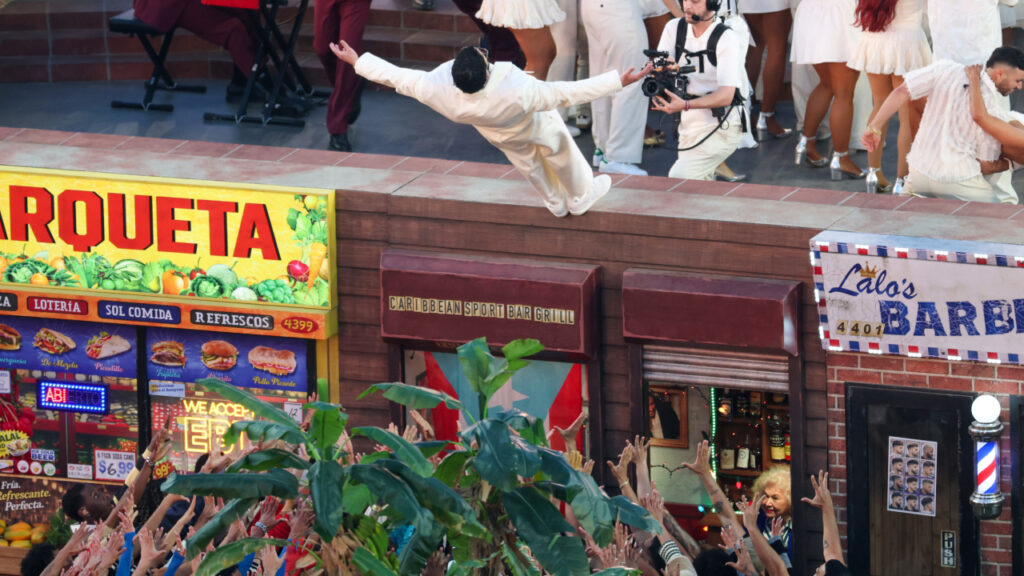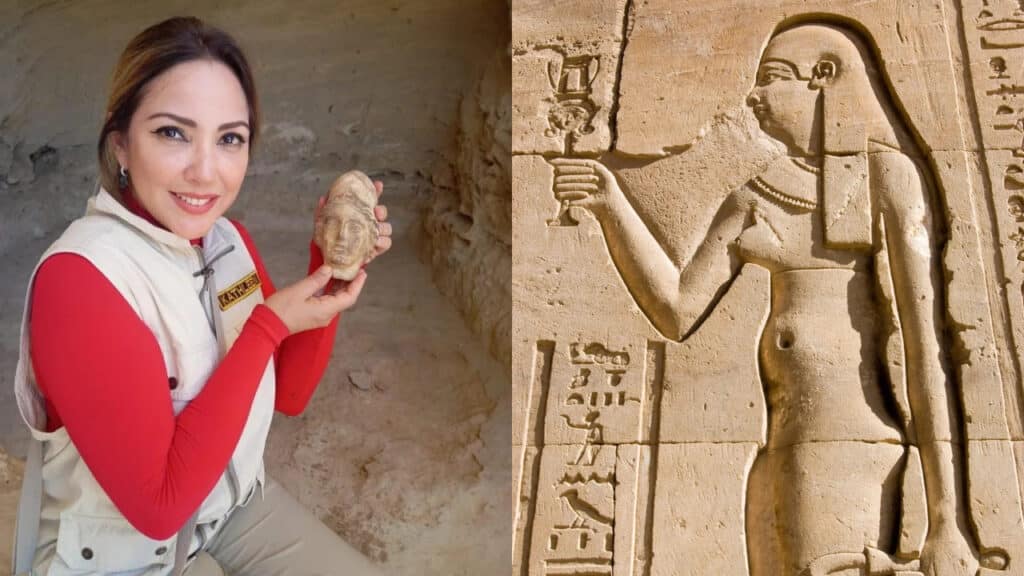
Swinging for Change: Verónica Álvarez’s Mission to Transform Women’s Baseball
When it comes to baseball, we grew up thinking it was something like being Geena Davis in “A League of Their Own” (1992). We thought it was a gendered sport and that women would have a hard time making it. However, nothing is further from the truth. Just ask Verónica Álvarez, the first Girls Baseball Ambassador for MLB.
The Cuban American professional baseball player has been on the field since she was five and is convinced the game has nothing to do with gender.
“As a society, we think that this sport is for boys and that softball is for girls,” Álvarez told FIERCE in an exclusive interview. “But it’s not necessarily the case.”
And her career is a testament to that.

With the support of her family, following her passion was a “no-brainer” for Verónica Álvarez
Born in Miami to Cuban parents, Verónica Álvarez always liked to play baseball with her brother. “Whenever my brother was playing, I would join him,” she said. Álvarez began playing little league at the Boys and Girls Club in Miami, and soon she realized she had talent. “My arm was my strength,” she remembers.
“So, I got to showcase that on the field,” she added, saying she soon became an asset to the team. Álvarez went on to play baseball until she was 10, and then she transitioned to softball.
However, the support of her parents was the main fuel behind her. “Typically, Latina girls don’t play baseball, they don’t play sports,” Álvarez said. But her parents “didn’t sway their commitment to allow me to do what I wanted to do [even] when people were telling them negative things.”
“They’ve supported me since I was a little girl and still support me,” the 41-year-old professional baseball player said. I think that’s the most important thing. The only reason I’m here is because of their support.”

One Google search changed it all
After Little League, Verónica Álvarez switched to softball, playing for former Cuban national team pitcher Hector Torres. She was a member of the Miami Wildcats (later the Stingrays) softball team and earned a scholarship to play at Villanova University. She played for four years. Álvarez graduated with a Bachelor of Arts in Communication with a minor in Sociology.
She went to play softball with a team in Valencia, Spain, but when she came back and started working, she knew she wanted to “get back on the field.” That’s when a Google search of the Colorado Silver Bullets led her to USA Baseball and to discover the team’s existence for the Women’s National Team.
“I found out about the World Cups every two years,” Álvarez said. “And I was fortunate to go to a tryout in 2008, make the team, travel to Japan, and come back. It was one of the greatest experiences to be able to come back to baseball and play with other like-minded women who love the game as well.”

Verónica Álvarez’s out-of-the-stadium home run
Verónica Álvarez went on to play on the women’s national team in 2008, 2010, and 2012. And in 2015, she made a dream come true by playing in the Pan American games.
“Growing up, my goal was always to be an Olympian,” Álvarez said. “So, to be at the Pan American games was almost like a second-best option.” But once she saw what women could do on the field, the next step was obvious. “My experiences as a player were incredible, and then I knew that once I stopped playing, I would go all into coaching.”
This way, after the Pan American games, Álvarez took every opportunity she could in the coaching world. “Anything that came to me, I’d say yes,” she remembered. “I really involved myself and tried to become the best coach possible.”
Verónica Álvarez took everything she had learned — including when she worked as a firefighter paramedic — to understand human nature and communicate better with her players.
“Ultimately, I think I am where I’m supposed to be,” she said. “I’m doing what I love and am grateful and passionate about it.”
Now, she is building bridges between the U.S. and Latin America
Verónica Álvarez has dedicated the last few years to fostering the next generation of female baseball players in the United States. She has worked as an assistant coach for the USA Baseball Women’s National Team. She also serves as a coach with the Oakland Athletics at Major League Baseball Spring Training.
But in 2019, she became the first woman named the Women’s National Team Rod Dedeaux Coach of the Year. Under her direction, Team USA finished its tournament with a perfect 7-0 record and the program’s first gold medal since the Toronto 2015 Pan Am Games.
Furthermore, growing up in a Cuban household has taught Verónica Álvarez not only Spanish but also the nuances and particularities of the Latino culture. As the current manager of the U.S. Women’s Baseball National Team and working with the Latin American Player Development, she’s putting all her skills to work.

“I always held on to my Latin roots,” Álvarez said. “So, now, I’m this bridge to merge [the American and Latino side] and make this better. I can bring the American side to the players [in Latin America] and bring the Latino culture to my coworkers here.”
That combination is how Álvarez approaches her work in the A’s academy in the Dominican Republic. However, she confesses she’s a “nerd” and keeps studying to be up to date with human behavior and development. “I’m a big believer that if we can learn on the field, we can learn off the field,” she added.
Álvarez also works in teaching English to players who want to make it in the U.S. so they can be “in control of the information.” Similarly, she encourages “the other side to do the same.”
“Again, it is about finding the middle ground,” she asserts.
Finally, Verónica’s main legacy remains her “Why”
Whenever Verónica Álvarez looks back and wonders, “Why am I doing this?” the answer is simple: to grow the game for girls and women in the sport. “To me, it’s a shame that somebody wouldn’t allow their daughters to take this path, grow, and contribute to other people’s lives just because it’s not the norm,” she said. “I want to teach them that there’s an opportunity and a space for them here in this world.”
This way, she approaches the teams with everything she has. “It’s my privilege to be able to give back to those young women to show them that there are no limits to what they can accomplish.”




